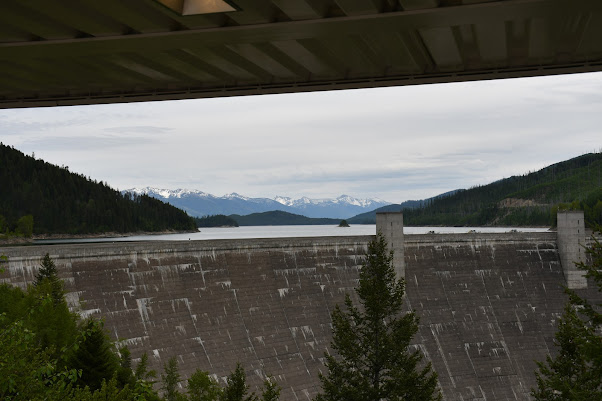T he Hungry Horse Dam located just outside Hungry Horse, Montana Let's talk about infrastructure, shall we? Living in the human-built world day in and day out, we often forget that all these buildings, roads, buried pipes, wires, sewers, and literally everything else we build is not actually natural. We require nature - other plant and animal species - for the ecosystem services they provide, but nature does not require our infrastructure. Think about that deeply for a moment and realize that no other species requires our electrical grid - it only serves us, and even we don't truly require it for survival; we got along fine for most ALL of the last 200,000 years or so (except for the last 150 years) without electricity. We *could* get along just fine without it now too, except we went into ecological overshoot. There is now no way to keep industrial civilization humming along without it, and this brings some rather uncomfortable facts to light as shown in this study about ou...






